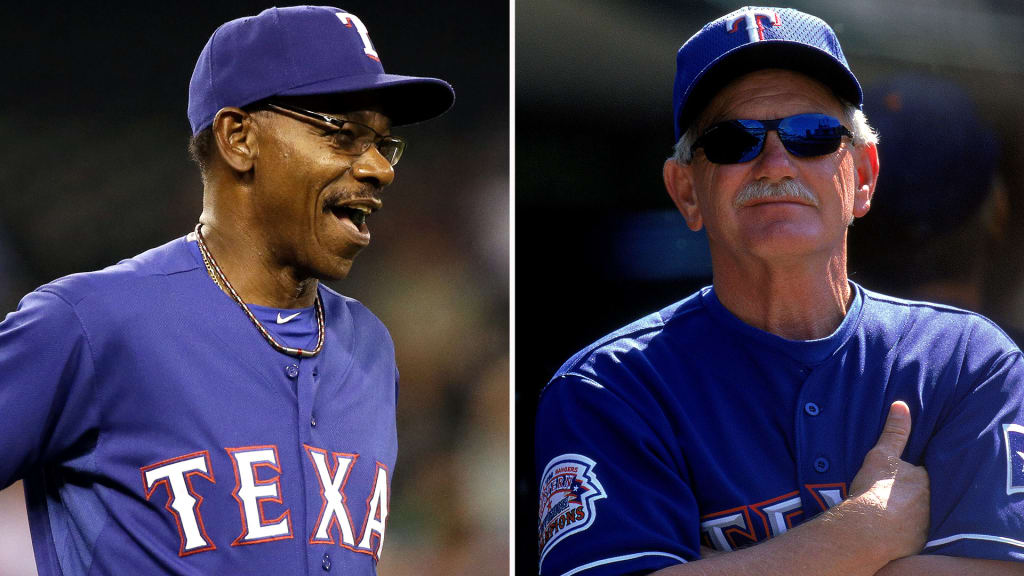
ARLINGTON -- No one loves a good debate quite like baseball fans, and with that in mind, we asked each of our beat reporters to rank the top five managers in the history of their franchise. These rankings are for fun and debate purposes only. If you don’t agree with the order, participate in the Twitter poll to vote for your favorite.
Here is T.R. Sullivan’s ranking of the top managers in Rangers history:
1. Ron Washington, 2007-14
Key fact: Washington led the Rangers to American League pennants in 2010 and ’11.
Washington was the Rangers' manager for eight years, and everybody liked him because, well, he was “Wash.” He was friendly and open, always with a smile, a joke and a kind word for everybody. He could tell great stories when prompted.
And, of course, his players played hard for him. That was perceived to be his singular asset. His players played hard.
That was good old “Wash.”
But that was never the real Rangers manager. Not by a long shot.
Washington could be tough and demanding. Ask Elvis Andrus. Ask Derek Holland, who had more than his share of one-on-one conversations with the manager on the mound. Ask C.J. Wilson, who felt the manager’s wrath when he casually flipped the ball to Washington after being pulled from a game.
But Washington had the right edge and got the best out of those players. He got the best out of Josh Hamilton, who was a superstar in Texas and fell apart in Anaheim. Nelson Cruz, Mike Napoli, Ian Kinsler, Neftalí Feliz, they became All-Stars in Texas. Washington knew he needed to push Holland and just hand the ball to Colby Lewis. He pushed Andrus and trusted Michael Young.
Washington knew how the game was supposed to be played, and he never wavered from his beliefs. He preached defense and fundamentals, and taught them tirelessly. He believed in aggressive baserunning, and it was a huge strength when the Rangers won those pennants. A sacrifice bunt is needed? Just get it down.
Just do whatever the game presents. It was his mantra. He said it a million times.
His favorite statistics? Runs scored and RBIs. He loved Kinsler because “he crossed the dish.” He asked for Vladimir Guerrero because he wanted a guy who “could get us the big hit and drive those runs in.”
Not innovating enough? When Guerrero was with the Angels, Washington was the first manager to shift on him by putting three infielders on the left side. Guerrero’s power dropped dramatically against Texas.
Washington, who had unswerving trust in pitching coach Mike Maddux, was criticized in the postseason for his bullpen use. He was accused of not being able to manage a bullpen, which reinforces one indisputable fact.
A Major League manager doesn’t realize how dumb the media perceives him until he takes a team to the postseason. The deeper the team goes into the postseason, the dumber he gets.
It also didn’t help in the postseason when television cameras caught him all excited when something good was happening. Or chomping on sunflower seeds. Tony LaRussa, Jim Leyland, Mike Scioscia and others were always shown solemn and serious.
But forget “Wash.” Ron Washington? He was as good as any of them. Or better.
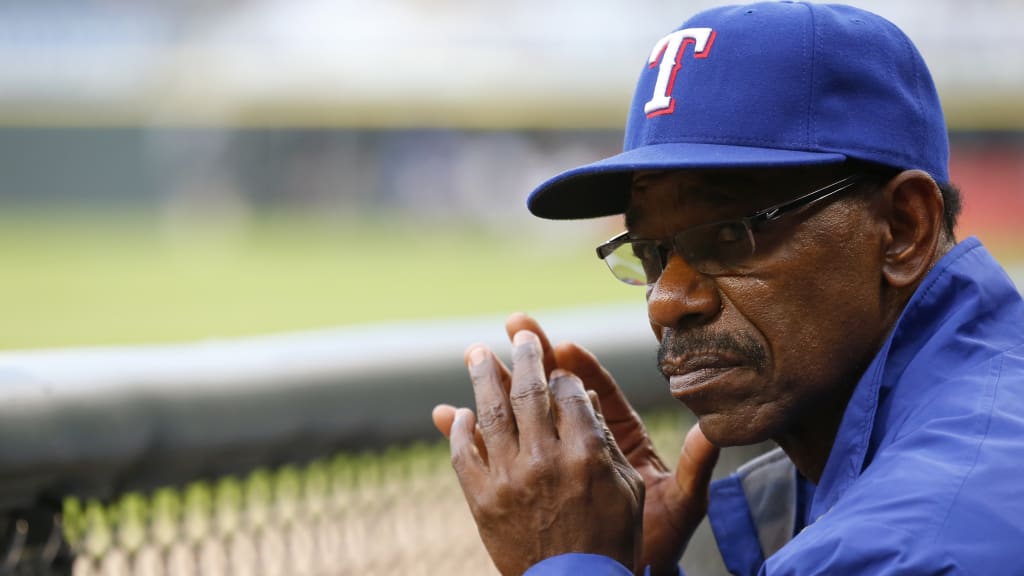
2. Johnny Oates, 1995-2001
Key fact: Oates led the Rangers to division titles in 1996 and '98-99 and was AL Co-Manager of the Year in '96, with Joe Torre.
Oates was schooled in Baltimore under Earl Weaver and Cal Ripken Sr., and he brought the Oriole Way to Texas. He was “old school,” a trite and tired term for a manager who believes there is a right way to play baseball and the game need not be reinvented.
Oates brought an unmistakable and professional presence to the clubhouse. He commanded respect from his players, and they responded. Juan Gonzalez flourished under Oates for a reason.
3. The Miracle Workers: Billy Martin (1973-75), Bobby Valentine (1985-92), Buck Showalter (2003-06)
Key fact: Each earned Manager of the Year honors while with the Rangers, but only Showalter (2004) won the BBWAA version.
Yes, these three should be combined into one entry. Their time in Texas was eerily similar.
Forget the dreary personality dissections. Suffice to say all three were dynamic personalities, possessing brilliant baseball minds. They brought badly needed excitement and energy at a time when the Rangers greatly needed it.
All three were hired at easily the three lowest points in Rangers history. Miserably low.
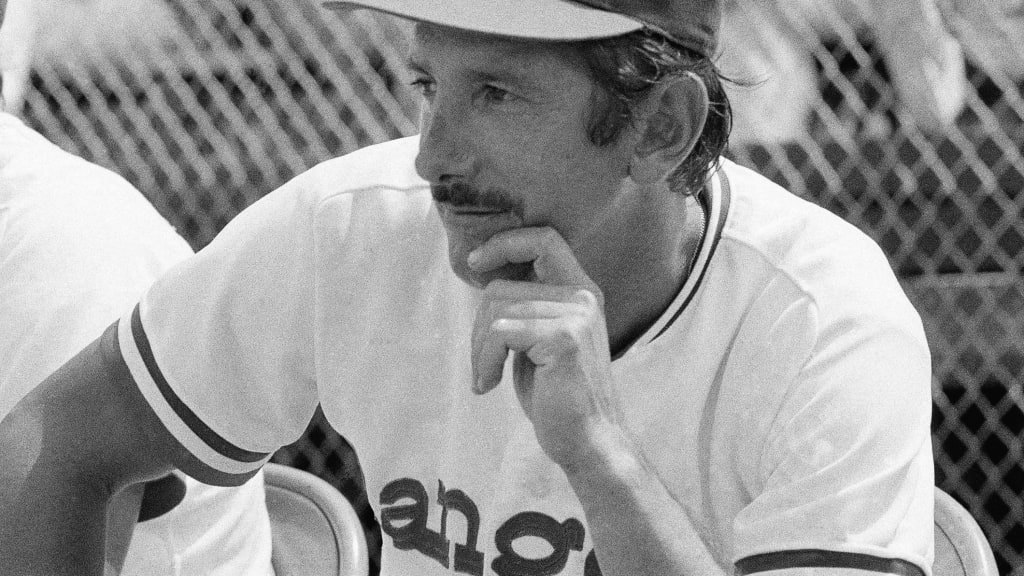
Then all three did one great thing and one bad thing.
The great thing? Fantastic, totally unexpected turnarounds.
The Rangers went from 57-105 in 1973 to 84-76 in '74 under Martin. They went from 62-99 in '85 to 87-75 the next year under Valentine. And Texas went from 71-91 under Showalter in 2003 to 89-73 the following season.
They didn’t get the Rangers to the postseason. But all three managers revived the franchise.
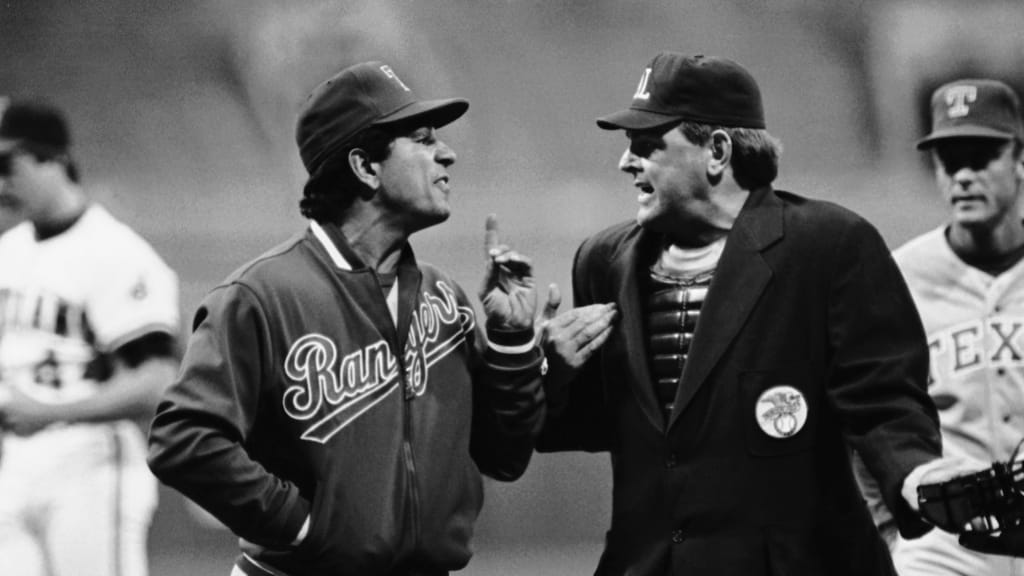
The bad thing?
They won too quickly. They won before the Rangers were ready to win. In all three cases, the club needed a far more thorough rebuild. The farm system, the infrastructure, ownership -- none of it was ready for such sudden success.
In all three cases, with great excitement came great expectations. The rebuilding was shoved aside because the Rangers were perceived by the wrong people to be closer than they actually were.
It didn’t happen for a variety of reasons, but excitement turned to disappointment, and they were no longer miracle workers.

4. Jeff Banister, 2015-18
Key fact: Banister was named AL Manager of the Year in 2015.
Washington led under difficult circumstances in 2014. It was a bad year overall for the Rangers, and they finished 67-95. Banister was hired after 29 years in the Pirates' organization.
The Rangers seemed at another low point. Then Banister led them to two division titles, and the excitement was back. Everybody loved “Banny,” just like they loved “Wash” and the “Miracle Workers.”
Then the winning stopped, and people realized “Banny” could be tough and demanding, too. Strong-willed. Stubborn. Maybe even intractable. Smart, successful managers have a tendency to get that way.
Managers are the only ones who are judged on their won-loss records. They are the only ones who have to answer to the media twice a day for eight months.
Clearly, with Banister, there was a disconnect between the field and front office. When that happens, the smart money in Texas is on the side of the front office.
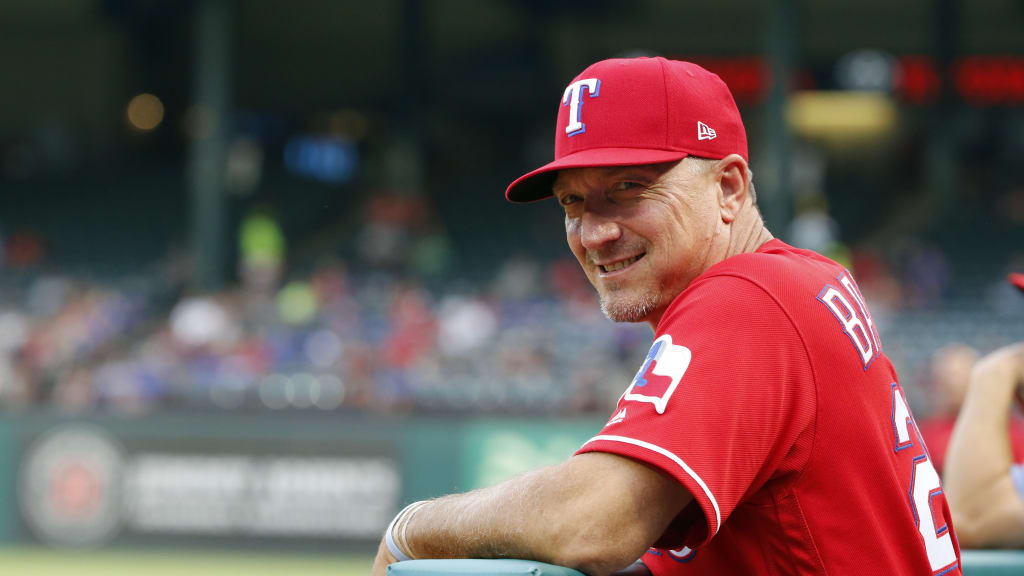
5. Whitey Herzog, 1973
Key fact: Herzog was inducted into the Hall of Fame in 2010.
This is the biggest "What If?" in Rangers history.
What if owner Bob Short had not pulled the plug on a no-name, inexperienced rookie manager after 138 games and brought in Martin for the quick fix?
Honorable mentions
• Billy Hunter: The fourth of four managers in 1977, he almost engineered a stunning turnaround that season.
• Kevin Kennedy: A smart baseball man, he took over a combustible clubhouse in 1993 that needed a personality makeover and wasn’t experienced enough to handle a disparate and disgruntled cast of characters.
• Jerry Narron: He deserves a medal for managing the 2002 rogues' gallery of players. For pure personality disorder, that team retired the trophy.
• Tim Bogar: He's the all-time winningest interim manager in Rangers history (14-8 in 2014).
• Chris Woodward: No, it is not yet time for a historical evaluation.
